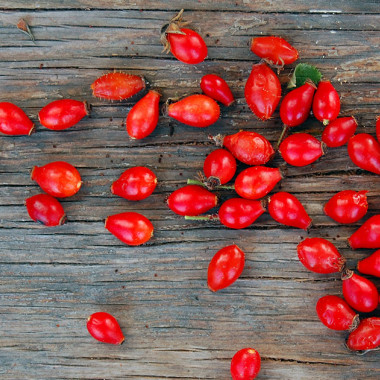After proteins, fats are the second most important component in a dog's diet. Besides providing a source of energy, they are essential for fat-soluble vitamins - A, D, E, K - and for hormone regulation. Oils for dogs are obtained by pressing plants, seeds, or fish. The most valuable are fish oils from mackerel, herring, cod, salmon, or tuna. From plant-based oils, flaxseed, milk thistle, coconut, or hemp oil are suitable. When feeding a BARF diet, it is advisable to alternate between plant and animal oils.
Oils are an excellent source of unsaturated fatty acids like omega-3 and omega-6. Omega-3 fatty acids include alpha-linolenic acid, eicosapentaenoic acid (EPA), and docosahexaenoic acid (DHA). Omega-6 fatty acids include linoleic acid and arachidonic acid. These unsaturated fatty acids are essential for the proper development and function of the brain, joints, have anti-inflammatory effects, positively influence eye function, coat quality, and the cardiovascular system.
Cod Liver Oil
The ingredients in dog food are rich in omega-6 fatty acids, which, in high doses or improper ratios to omega-3 fatty acids, create inflammation in the body. Therefore, it is advisable to add cod liver oil, which is rich in omega-3 fatty acids, to the dog's diet.
Hemp Oil
It is particularly beneficial for conditions such as anxiety, arthritis (joint inflammation), back pain, seizures, and cancer.
Flaxseed Oil
It is an excellent source of omega-3 fatty acids. It is suitable to include in the BARF diet to ensure a proper ratio to omega-6 fatty acids.
Milk Thistle Oil
It strengthens the immune system, improves digestion, and increases appetite. A beneficial effect of milk thistle has also been found in the treatment of kidney disease, diabetes, pancreatitis, and cancer.
Coconut Oil for Dogs
It has many benefits. It contains lauric acid, which has antibacterial, antifungal, and antiviral properties. It can be rubbed on damaged skin and paws, or mixed into the food.
Salmon Oil
It is a natural fish oil for dogs that contains unsaturated fatty acids, especially EPA and DHA. When choosing the right salmon oil, it is important that it is cold-pressed and comes from wild sources.
Oils, whether plant-based or animal-based, serve as a dietary supplement, and their recommended dosage should not be exceeded. It is also important to choose the highest quality oil, which is cold-pressed.










